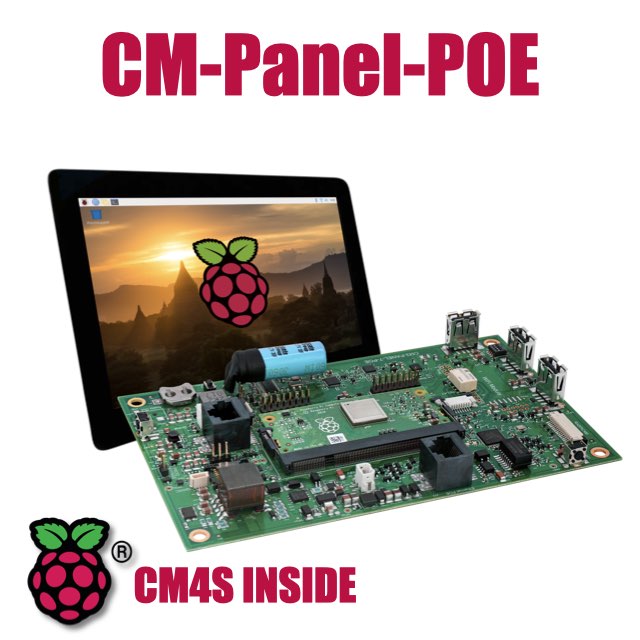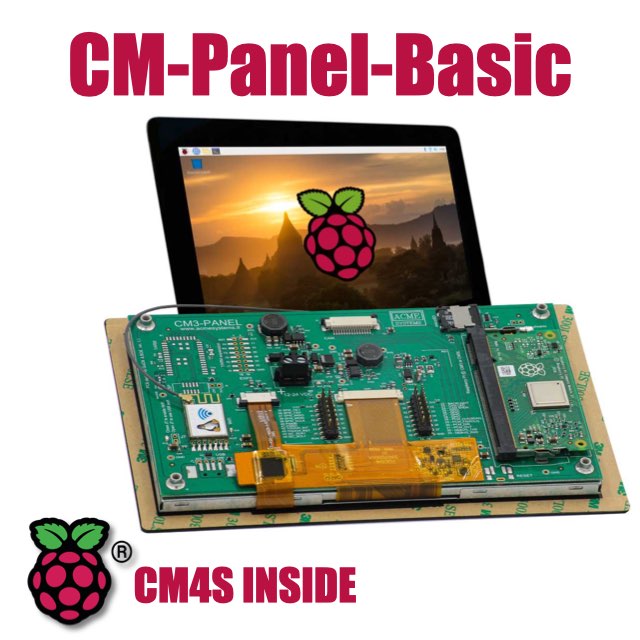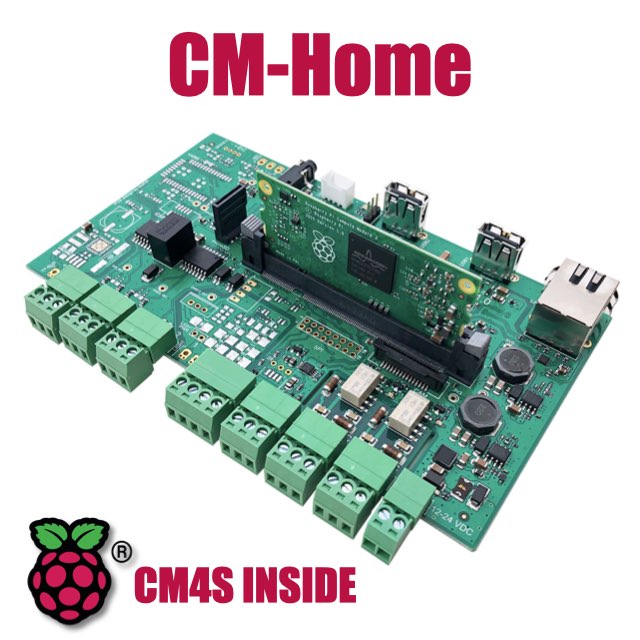CM Panel technical documentation Buy
Setting the Real Time Clock hardware
Check the precence of RTC chip
$ sudo apt update
$ sudo apt install python-smbus i2c-tools
Enable the I2C port using raspi-config:
$ sudo raspi-config
Get the list of I2C ports available:
$ sudo i2cdetect -l
i2c-3 i2c 3.i2c I2C adapter
i2c-1 i2c bcm2835 (i2c@7e804000) I2C adapter
Check the presence of RTC chip on i2c-1 bus by typing:
$ sudo i2cdetect -y 1
0 1 2 3 4 5 6 7 8 9 a b c d e f
00: -- -- -- -- -- -- -- -- -- -- -- -- --
10: -- -- -- -- -- -- -- -- -- -- -- -- -- -- -- --
20: -- -- -- -- -- -- -- -- -- -- -- -- -- -- -- --
30: -- -- -- -- -- -- -- -- -- -- -- -- -- -- -- --
40: -- -- -- -- -- -- -- -- -- -- -- -- -- UU -- --
50: -- -- -- -- -- -- -- -- -- -- -- -- -- UU -- --
60: -- -- -- -- -- -- -- -- 68 -- -- -- -- -- -- --
70: -- -- -- -- -- -- -- --
68 is the hex address of the real time clock chip.
Use the hardware RTC instead of sofware fake-hwclock
The fake-hwclock is a utility used on systems without an RTC to save the time at regular intervals and when the system is shutting down.
To disable this fuction type these commands:
$ sudo apt -y remove fake-hwclock
$ sudo update-rc.d -f fake-hwclock remove
$ sudo systemctl disable fake-hwclock
Edit file /lib/udev/hwclock-set:
$ sudo nano /lib/udev/hwclock-set
and comment the lines:
#!/bin/sh
# Reset the System Clock to UTC if the hardware clock from which it
# was copied by the kernel was in localtime.
dev=$1
#if [ -e /run/systemd/system ] ; then
# exit 0
#fi
Edit the file /etc/modules:
$ sudo nano /etc/modules
and add these contents:
# /etc/modules: kernel modules to load at boot time.
#
# This file contains the names of kernel modules that should be loaded
# at boot time, one per line. Lines beginning with "#" are ignored.
i2c-dev
rtc-8523
Edit file /etc/rc.local:
$ sudo nano /etc/rc.local
and insert these lines before the exit 0:
# PCF8523
echo pcf8523 0x68 > /sys/class/i2c-adapter/i2c-1/new_device
Reboot:
$ sudo reboot
Re-type the command:
$ sudo i2cdetect -y 1
0 1 2 3 4 5 6 7 8 9 a b c d e f
00: -- -- -- -- -- -- -- -- -- -- -- -- --
10: -- -- -- -- -- -- -- -- -- -- -- -- -- -- -- --
20: -- -- -- -- -- -- -- -- -- -- -- -- -- -- -- --
30: -- -- -- -- -- -- -- -- -- -- -- -- -- -- -- --
40: -- -- -- -- -- -- -- -- -- -- -- -- -- UU -- --
50: -- -- -- -- -- -- -- -- -- -- -- -- -- UU -- --
60: -- -- -- -- -- -- -- -- UU -- -- -- -- -- -- --
70: -- -- -- -- -- -- -- --
Address 0x68 is Real Time Clock
Products related

All-in-one 7 inch touch POE terminal powered by Raspberry Pi CM4S
- 7 inch TFT display 800x480 pixel
- Capacitive touch
- Embedded micro UPS for safe shutdown
- Power Over Ethernet @ 10/100 Mbit
- Hi-resolution audio up to 384KHz@32bit
- Real Time Clock with backup battery
- 3 USB Host port
- 1 RS485/422/RS232 port
- 1 Relay
- MIPI Camera connector
- WiFi @ 2.4 GHz (optional)









